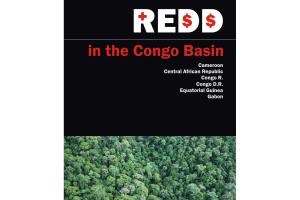Since 1974, industrial monoculture tree plantations have spread throughout Chile, and are particularly concentrated in the regions of Bío-Bío and Araucanía, although they are also found in the regions of Maule, Los Ríos and Los Lagos.
The Green Economy
The Green Economy is a tactic used to “clean up” the image of corporations rather than address corporate capture and capitalism as the true drivers of deforestation. False solutions promoted under the Green Economy include certification, sustainable forest management, ecosystem services, REDD+, the bioeconomy, nature-based climate solutions, and zero net deforestation. Rather than stopping it, these “solutions” support corporate-driven destruction that is causing a deep social and ecological crisis.
Bulletin articles
28 February 2011
Bulletin articles
28 February 2011
GeaSphere is an environmental pressure group working towards a more sustainable model of living based on lower impact agriculture practices that are environmentally sustainable, socially just and which ensures food security and promotes locally based economies and poverty alleviation in the southern African region. A major threat to the local integrated environment is the large scale industrial timber plantation industry, responsible for the transformation of millions of hectares of bio diverse grasslands, the primary vegetation type in most of Southern Africa’s timber growing regions.
Other information
28 February 2011
Indonesia is a crucial country for REDD. It has one of the fastest rates of deforestation in the world. And, as a direct result of this deforestation (particularly the destruction of peatswamp forests) Indonesia is the world’s third highest emitter of carbon dioxide.
Other information
25 February 2011
By REDD Monitor
REDD, or reduced emissions from deforestation and forest degradation, is one of the most controversial issues in the climate change debate. The basic concept is simple: governments, companies or forest owners in the South should be rewarded for keeping their forests instead of cutting them down. The devil, as always, is in the details.
Other information
20 February 2011
Video - In a remote corner of Brazil's Atlantic coast, they say time is a fiction. This ancient forest is seemingly unspoiled by modern life -- beyond the reach of men, machines, and markets. But a closer look reveals something very different happening here. Reported by Mark Schapiro, produced by Andres Cediel & co-produced by Daniela Broitman.
Watch the video here: http://www.pbs.org/frontlineworld/stories/carbonwatch/2010/05/the-carbon-hunters.html
Bulletin articles
29 January 2011
The United Nations General Assembly has declared 2011 the International Year of Forests, and WRM has decided to devote its first bulletin of the year to this significant event. According to the resolution adopted by the General Assembly, the UN is committed to promoting “the management, conservation and sustainable development of all types of forests.”
Bulletin articles
29 January 2011
The origin of forests
Some 430 million years ago, plants and arthropods began to live on land and to evolve, adapting to their new habitat while adapting their habitat at the same time. Larger and more varied types of plants – giant versions of what are classified by science today as lycopods, equisetums and ferns, reaching heights of up to 12 metres – spread across the swamps and lakeshores until forming the first terrestrial forests, which were occupied by the primitive ancestors of millipedes, centipedes, insects, mites and spiders.
Bulletin articles
30 December 2010
The FSC (Forest Stewardship Council)website has announced that the company Chikweti Forests of Niassa, which operates in the province of Niassa in northern Mozambique, is seeking the FSC “green label” for a 33,916-hectare monoculture tree plantation. According to the website, the pre-evaluation was carried out in November 2010, and the main evaluation is anticipated for February/March 2011. The FSC certification body in this case is Soil Association Woodmark, based in the United Kingdom.
Other information
20 December 2010
NO REDD - A READER is a collection of articles written by REDD Monitor, Global Justice, Ecology Project, Censat Agua Viva, Amazon Watch, Acción Ecológica, COECOCEIBA-AT, OFRANEH, World Rainforest Movement, Carbon Trade Watch, RisingTide, ETC Group and Indigenous Environmental Network
Download the full document here
Other information
18 December 2010
By Chris Lang
Publications
11 December 2010
The forest of the Congo Basin expands over an area of continuous tropical rainforest cover only second to that of the Amazon forest. Those forests are currently receiving a lot of attention within the Climate Change negotiations.
Other information
10 December 2010
A controversial proposal to protect forests worldwide is on the table at the U.N. Climate Change Conference in Cancún. Reducing Emissions from Deforestation and Forest Degradation (REDD), would include forests in the emerging carbon markets, allowing governments and corporations to purchase permits to protect forests as a way to offset the carbon released into the atmosphere through its industrial pollution. Though often reported as a means to stop deforestation, there is widespread opposition to REDD from environmental and indigenous groups.




